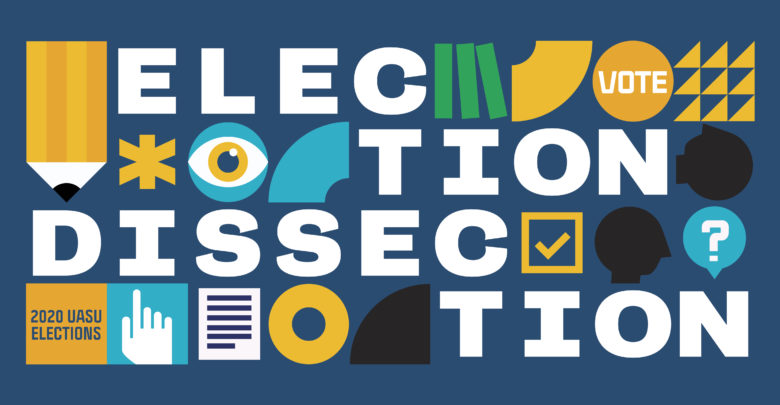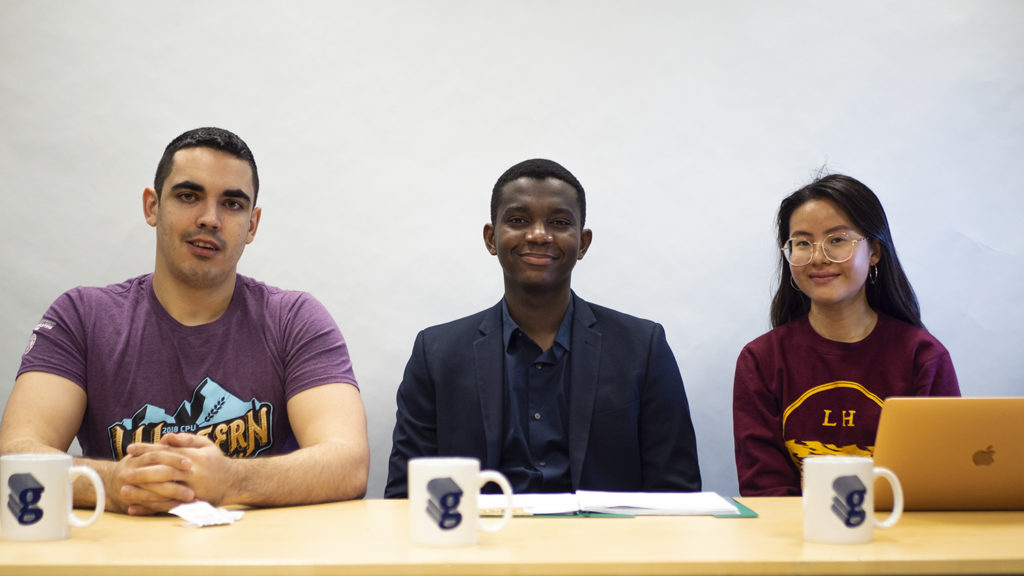SU Elections 2020 Dissection: Students’ Union Sustainability and Capital Fund
While the panel ultimately said the fee should pass, they criticized it for a few reasons
 Peter Elima
Peter ElimaEvery year The Gateway hosts a panel to determine who should and who will win in each race for the Students’ Union elections to assist those undecided on who to vote for. Our election dissection panel is here with their insights on student politics and their takes on this year’s candidates.
Opinions expressed by the panellists do not reflect those of The Gateway.
The panel
This years panel for election dissection included:
- Victoria Chiu: current first-year law student and former Online Editor and Arts & Culture Editor at The Gateway.
- Kevin Mpunga: second-year bilingual nursing student and vice-president (media and marketing) at the Black Students’ Association.
- Rory Storm: U of A alumni, past candidate for Students’ Union vice-president (student life), and past president of the U of A Interfraternity Council.

The Students’ Union Sustainability and Capital Fund Referendum
The Students’ Union is asking, as part of the election for representatives, if students support paying a brand-new fee of $25 a semester to contribute towards the continual renovation of the Students’ Union Building towards a carbon-neutral future by 2050 and address deferred maintenance in the building.
The panel had mixed feelings about the fee as it was proposed.
Chiu said she would feel more comfortable voting yes for the sustainability fund if actual projects were proposed alongside it, not examples of some.
“I would’ve liked to see, ‘hey here are two projects we would undertake if this passed and here is the idea for the future,'” she said. “It’s hard to vote on, here are examples which include solar panels on SUB’s roof and Myer Horowitz Theatre renewal, but could include others.”
The panel agreed that not every student spends a lot of time in SUB. For them, campus is a lot more than just that one building.
“I don’t actually spend much time in SUB,” Chiu said. “Why do students always have to get harangued for money for it?”
“I completely agree,” Mpunga said. “SUB is one thing, they are trying a little too hard to make it the thing.”
The panel also agreed that if SUB “desperately” needed deferred maintenance to be addressed, then the campaign didn’t do a go job of highlighting that.
“Tell me what these problems are,” Storm said. “If the building is falling apart, I want to know what the problems are and then I will see the fund as a way to fix that… it also would justify the urgency narrative. Like I know climate change is happening, but the SU would have such a stronger narrative had they said not only do we want to go carbon-neutral but on top of that, these are the realities.”
“Like if they said, the boiler for hot water is so broken we can’t get hot water anymore, or if something else needed addressing, then sure I would support that,” he said.
Storm then brought out his calculator app and did the math, recognizing that the proposal for the fee says external fundraising dollars could be added on.
“If there are 37,000 undergraduate students that pay $50 a year that means the fund will create about $1.9 million,” he said. “I would like to see not just per cent allocations but also money ones. The solar panels are estimated to cost this. Cafeteria redesign that, etcetera.”
For Mpunga, the allocations of the fund were “slightly off.” For him, 15 per cent being allocated towards Social and Environmental Sustainability Projects and five per cent going towards the creation of a Sustainability Emerging Projects Grant was not enough. He hoped more of the fund would go towards those initiatives.
“To me, that is where the real excitement is,” he said.




